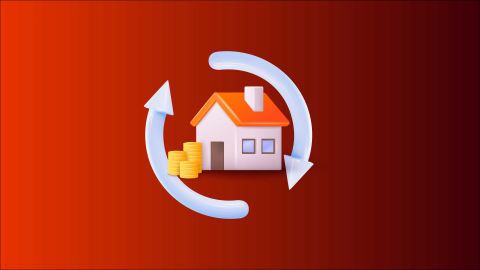What is the income tax rebate under section 87A?
Income tax rebate is a benefit provided by the government to taxpayers that allows them to reduce their total tax liability. It is the reduction in the amount of tax to the taxpayers by the government in order to promote savings and investment. In India, income tax rebates play a crucial role in providing substantial relief to taxpayers, particularly those belonging to the middle-income segment. A tax rebate essentially entails a reduction in the tax amount that individuals are required to pay. It serves as an incentive offered by the government to encourage savings and is specifically outlined in Section 237 of the Income Tax Act. By implementing tax rebates, the government aims to promote a culture of savings and financial security among taxpayers.
- The rebate mainly benefits low and middle-income resident individuals.
- It applies only to those whose income falls within the lower tax slab limits.
- Under the new tax regime, eligible taxpayers can receive a rebate of up to Rs. 60,000 if their total income does not exceed Rs. 12 lakh.
- Under the old tax regime, the maximum rebate available is Rs. 12,500 for income up to Rs. 5 lakh.
- Taxpayers within these income limits effectively pay no income tax.
- The rebate is calculated on total tax before adding the 4% health and education cess.
- It is designed to reduce the tax burden and support basic financial stability.
- The benefit is automatically applied while filing income tax returns if eligibility criteria are met.
The Income Tax Act, 1961, governs the provisions for income tax rebates in India. According to this Act, tax rebates are available for specific investments and expenditures made by taxpayers (under the old tax regime). The amount of rebate you can claim varies depending on the nature of the investment or expenditure.
What is the 87A rebate for FY 2025-26?
Through the Union Budget 2025-26, the government has increased the Section 87A rebate for individual taxpayers choosing the new tax regime. Let’s see how:
Previous (FY 24-25 and before) |
Current (FY 25 -26 and onwards) |
Earlier, taxpayers with income up to Rs. 7 lakh could get a rebate of up to Rs. 25,000 |
Now, if your total income is up to Rs. 12 lakh, you can get a rebate of up to Rs. 60,000. |
Due to this rebate, your tax liability becomes zero if your income is within Rs. 7 lakh or Rs. 12 lakh limit. However, please note that this change applies only to the new tax regime.
Who is eligible for an 87A rebate?
The Section 87A rebate is available only to resident individuals in India. It does not apply to:
Companies
Partnership firms
Non-resident individuals
The income limit for getting this rebate depends on the tax regime you choose.
For FY 24-25:
If you choose the new tax regime, your total income must be Rs. 7 lakh or less to get the rebate.
Whereas, if you choose the old tax regime, your income must be Rs. 5 lakh or less.
Please note that if your income stays within these limits, your final income tax liability comes out to be zero.
What is the tax rebate for senior citizens?
Senior citizens (age 60 and above) can get a tax rebate under Section 87A, just like other individuals. However, super senior citizens (age 80 and above) are not eligible. Let’s see the income limits (to determine eligibility for rebate) applicable to them for FY 24-25:
Under the old tax regime:
If a resident individual’s total taxable income is less than Rs. 5 lakh, they can claim a rebate of up to Rs. 12,500 under Section 87A. However, the rebate cannot be more than the total tax payable before including cess.
Under the new tax regime:
If their income is up to Rs. 7 lakh, they get a rebate of up to Rs. 25,000.
This again makes their tax zero.
Increased tax rebate under 87A in the new regime
The Union Budget for FY 2025-26 has increased the tax rebate under Section 87A for individuals who opt for the new tax regime.
Earlier, taxpayers with income up to Rs. 7 lakh could claim a rebate of Rs. 25,000.
Now, the rebate has been increased to Rs. 60,000 and can be claimed if the income is up to Rs. 12 lakh.
Also, if a taxpayer claims the standard deduction of Rs. 75,000, then no tax is payable on income up to Rs. 12.75 lakh. This increase reduces the tax liability for middle-income earners under the new regime. However, please note that these changes apply from FY 2025-26 onwards.
For more clarity, let’s study a comparison of rebate limits over the years:
Financial year |
Old regime – Rebate u/s 87A |
Rebate limit (Income up to) |
New regime – Rebate u/s 87A |
Rebate limit (Income up to) |
2025-26 |
Rs. 12,500 |
Rs. 5,00,000 |
Rs. 60,000 |
Rs. 12,00,000 |
2024-25 |
Rs. 12,500 |
Rs. 5,00,000 |
Rs. 25,000 |
Rs. 7,00,000 |
2023-24 |
Rs. 12,500 |
Rs. 5,00,000 |
Rs. 25,000 |
Rs. 7,00,000 |
2022-23 |
Rs. 12,500 |
Rs. 5,00,000 |
Rs. 12,500 |
Rs. 5,00,000 |
2021-22 |
Rs. 12,500 |
Rs. 5,00,000 |
Rs. 12,500 |
Rs. 5,00,000 |
2020-21 |
Rs. 12,500 |
Rs. 5,00,000 |
Rs. 12,500 |
Rs. 5,00,000 |
Rebate u/s 87A for FY 2024-25 (AY 2025-26)
For the Financial Year 2024-25 (Assessment Year 2025-26), the tax rebate under Section 87A remains unchanged. If you choose the new tax regime, you can claim a rebate of up to Rs. 25,000 if your taxable income is Rs. 7 lakh or less.
This means you won’t have to pay any tax if your income is within this limit. If your income exceeds Rs. 7 lakh, you won’t get this rebate.
If you choose the old tax regime, the rebate is still Rs. 12,500 for individuals with income up to Rs. 5 lakh. In this case, too, your total tax becomes zero.
Please note that the increased rebate (of up to Rs. 60,000) for income up to Rs. 12 lakh, as announced in the Budget 2025, does not apply to FY 2024-25. That change will apply from FY 2025-26 onwards.
Rebate against various tax liabilities
Section 87A rebate can be claimed against tax liabilities arising from different types of income. This means the rebate is not restricted only to normal salary or business income but can also reduce tax on certain capital gains. The rebate applies to regular income that is taxed according to slab rates. It can also be used to lower tax payable on long-term capital gains covered under Section 112 of the Income Tax Act, which includes gains from assets other than listed shares and equity-oriented mutual funds. Additionally, taxpayers can claim the rebate against short-term capital gains from listed equity shares and equity mutual funds that are taxed at a flat rate of 15% under Section 111A. This makes the rebate more flexible and beneficial for eligible individuals.
Eligibility to claim a rebate from Section 87A
To claim a rebate under Section 87A, you must meet certain conditions. Firstly, this rebate is available only to resident individuals. It is not available to:
Partnership firms
Companies
Non-residents
Senior citizens (aged 60 to 80 years) can claim this rebate. However, super senior citizens (aged above 80 years) are not eligible for the rebate under Section 87A.
Secondly, your total income, after subtracting deductions (like under Section 80C), must be within these limits:
For the old tax regime, the income limit is Rs. 5 lakh.
For the new tax regime, the limit is:
Rs. 7 lakh for FY 2023-24 and FY 2024-25
Rs. 12 lakh from FY 2025-26 onwards
Please note that the rebate is applied to your tax amount before adding the 4% health and education cess.
How to claim income tax rebate for FY 2024-25 (AY 2025-26)?
To claim income tax rebate in India, follow these steps:
- Work out your total income from all sources for the financial year.
- Deduct eligible tax-saving investments and expenses where applicable.
- Arrive at your final taxable income after all deductions.
- Report your income and deductions correctly while filing your ITR.
- If your income is within the specified limit, the rebate under Section 87A will be automatically applied by the tax portal.
Example 1 – New Tax Regime (AY 2026–27)
Particulars |
Amount (Rs.) |
Gross total income |
12,00,000 |
Less: Section 80C deduction |
NA |
Total income |
12,00,000 |
Tax @ 5% on income between Rs. 4 lakh and Rs. 12 lakh |
60,000 |
Less: Rebate under Section 87A |
60,000 |
Tax payable |
Nil |
Note: Section 80C deductions are not allowed under the new tax regime.
Example 2 – Old Tax Regime (AY 2026–27)
Particulars |
Amount (Rs.) |
Gross total income |
6,50,000 |
Less: Section 80C deduction |
1,50,000 |
Total income |
5,00,000 |
Tax @ 5% on income between Rs. 2.5 lakh and Rs. 5 lakh |
12,500 |
Less: Rebate under Section 87A |
12,500 |
Tax payable |
Nil |
Additional deductions you may claim
- Section 80C – tax-saving investments like PPF, ELSS, LIC, etc.
- Section 80D – medical insurance premiums.
- Section 80CCD – contributions to NPS.
- Section 80G – donations to eligible charities.
If your total income after deductions is within the prescribed limit, you can legally reduce your tax to zero using Section 87A rebate.
Determine eligibility
Check if you meet the eligibility criteria for claiming an income tax rebate. Rebates are typically available for specific categories such as senior citizens, individuals with certain disabilities, or taxpayers in specific income brackets. Make sure you meet the criteria specified by the Department of the Income Tax.
Calculate taxable income
Calculate your total taxable income by considering all sources of income, including salary, business profits, capital gains, and other applicable income. Deduct eligible deductions and exemptions to arrive at the final taxable income amount.
Identify the rebate section
Identify the relevant section under which you can claim the income tax rebate. The specific section depends on the nature of the rebate you are eligible for. Common rebate sections include Section 87A (for individuals with lower income) and Section 80C (for certain investments and expenses).
Gather necessary documents
Collect all supporting documents required to claim the rebate. This may include investment proofs, certificates, receipts, and other relevant documents as per the rebate section you are claiming.
File income tax return
Prepare and file your income tax return using the appropriate forms (such as ITR-1, ITR-2, etc.) based on your income sources. Ensure you accurately report your income, deductions, and claim the rebate under the appropriate section.
Verify and submit
Review your income tax return for accuracy and completeness. Make sure all necessary details, including the rebate claim, are correctly entered. Once satisfied, submit your income tax return either electronically through the income tax e-filing portal or physically by mailing it to the designated Income Tax Office.
It is recommended to consult a tax professional or chartered accountant for personalized guidance and assistance in claiming income tax rebates based on your specific financial situation and eligibility.
Key points to know before claiming 87A rebate
Are you planning to claim the Section 87A rebate? You must meet the following conditions to remain compliant:
1. Eligibility criteria
The rebate under Section 87A is available only to resident individuals. The following taxpayers cannot claim this rebate:
Non-resident individuals
Hindu Undivided Families (HUFs)
Companies
Partnership firms
Additionally, senior citizens, who are aged 60 years or more but less than 80 years, are eligible to claim the rebate. Super senior citizens (aged 80 years or above) cannot claim the rebate under this section.
That’s because super senior citizens already benefit from a higher basic exemption limit (Rs. 5 lakh) and are thus excluded from Section 87A benefits.
2. Rebate amount
The rebate is applied on the total tax amount before adding the 4% health and education cess. It means the rebate reduces the base tax amount, and then the cess is added to the remaining tax, if any.
The maximum amount of rebate you can claim is the lower of the following:
The limit specified under Section 87A (Rs. 12,500 under the old regime, Rs. 25,000 or Rs. 60,000 under the new regime, depending on the financial year)
and
The actual income tax payable by you
If your tax payable is less than the specified rebate amount, then only the tax payable will be reduced. You cannot get a refund for the difference.
3. Tax regime applicability
The Section 87A rebate is available under both tax regimes:
Old regime |
New regime |
|
|
4. Types of income covered
You can claim the Section 87A rebate against taxes on:
Normal income:
It is taxed according to income tax slabs.
You can use the rebate to reduce the arising tax liability.
Long-term capital gains (LTCG):
You cannot apply the Section 87A rebate to LTCG from listed equity shares or equity-oriented mutual funds.
However, if LTCG arises from other assets (like property, unlisted shares, debt funds taxed at slab rates), then the rebate is allowed.
Short-term capital gains (STCG):
STCG taxed at 20% (from FY 2024-25 onwards) is eligible for the Section 87A rebate.
5. Types of income not covered
You cannot claim the rebate against:
LTCG from listed equity shares
or
LTCG from equity-oriented mutual funds, which are taxed under Section 112A.
These gains are taxed at a flat 12.50%, and the rebate under Section 87A is not allowed on this portion of the tax.
Types of Income Tax Rebate
There are several types of income tax rebates available in India. Here are some common types:
- Section 87A: This rebate is available for individuals with lower income. As per Section 87A of the Income Tax Act, if the total income of an individual does not exceed a certain threshold (currently Rs. 5 lakh), they are eligible for a rebate of up to Rs. 12,500.
- Section 80C: Under Section 80C, individuals can claim a rebate on investments made in specified financial instruments. This includes investments in instruments like Employee Provident Fund (EPF), Public Provident Fund (PPF), National Savings Certificates (NSC), tax-saving fixed deposits, equity-linked saving schemes (ELSS), and life insurance premium payments. The maximum rebate allowed under this section is Rs. 1.5 lakh.
- Section 80D: This rebate is available for payments made towards health insurance premiums. Under Section 80D, individuals can claim a rebate on premiums paid for health insurance policies for themselves, their spouse, children, and parents. The maximum rebate amount varies depending on the age of the insured and the coverage opted for.
- Section 24(b): This rebate is related to home loan interest payments. Under Section 24(b), individuals can claim a rebate on the interest paid on home loan repayments. The maximum rebate allowed is Rs. 2 lakh per financial year.
- Section 80E: This rebate is applicable to individuals repaying education loans. Under Section 80E, individuals can claim a rebate on the interest paid on education loans for higher studies. The entire interest amount paid can be claimed as a deduction for a maximum of 8 years.
- Section 80G: This rebate is available for donations made to specified charitable organizations. Under Section 80G, individuals can claim a rebate on the donations made to eligible charitable institutions. The rebate percentage varies depending on the organization and is subject to certain limits.
These are just a few examples of the income tax rebates available in India. It is essential to review the specific provisions, eligibility criteria, and limitations for each rebate section before claiming them. Consulting a tax professional or chartered accountant can provide personalized guidance and assistance based on individual circumstances.
Marginal relief under rebate under section 87A in the new tax regime
Under the new tax regime, Section 87A offers a tax rebate that makes income up to Rs. 7 lakh (FY 2024–25) or Rs. 12 lakh (FY 2025–26) tax-free. However, if your income goes even slightly above this limit:
The rebate is removed
and
You have to pay the full tax on your total income
This sudden tax jump for a small increase in income can feel unfair.
To resolve this issue, the government provides “marginal relief”. This relief ensures that the extra tax you pay is not more than the extra income you earn beyond the threshold.
Due to this relief:
If your income just crosses the rebate limit
then
Your tax amount will not be more than the amount by which your income exceeds the threshold.
Let’s understand better through an example
Say your income is Rs. 12,00,000.
You get a rebate of Rs. 60,000.
You pay no tax.
Now, assume that your income increases to Rs. 12,10,000.
In this case, you lose the rebate and must pay full tax.
As per the latest slabs, your tax liability would be Rs. 61,500.
Please observe that this tax would be much higher than the Rs. 10,000 increase in your income. Now, marginal relief corrects this imbalance. After applying the marginal relief, your income tax liability will be restricted to Rs. 10,000 instead of Rs. Rs. 61,500.
The table below shows how much tax you would pay with and without marginal relief at different income levels:
Income |
Tax payable without marginal relief |
Tax payable with marginal relief |
Rs. 12,10,000 |
Rs. 61,500 |
Rs. 10,000 |
Rs. 12,50,000 |
Rs. 67,500 |
Rs. 50,000 |
Rs. 12,70,000 |
Rs. 70,500 |
Rs. 70,000 |
Rs. 12,75,000 |
Rs. 71,250 |
Rs. 71,250 (No marginal relief) |








